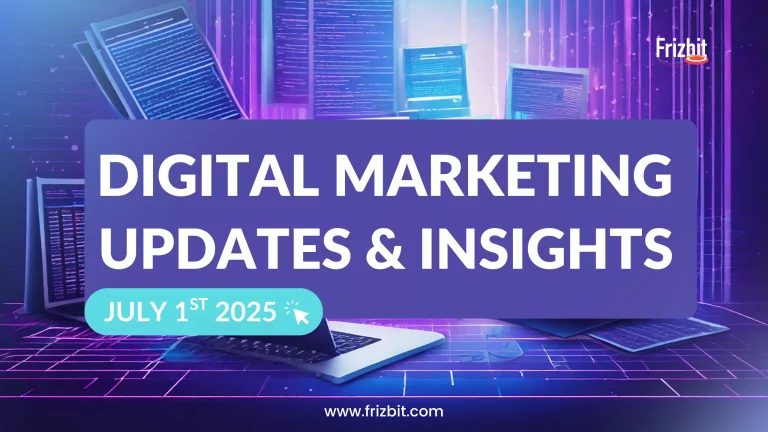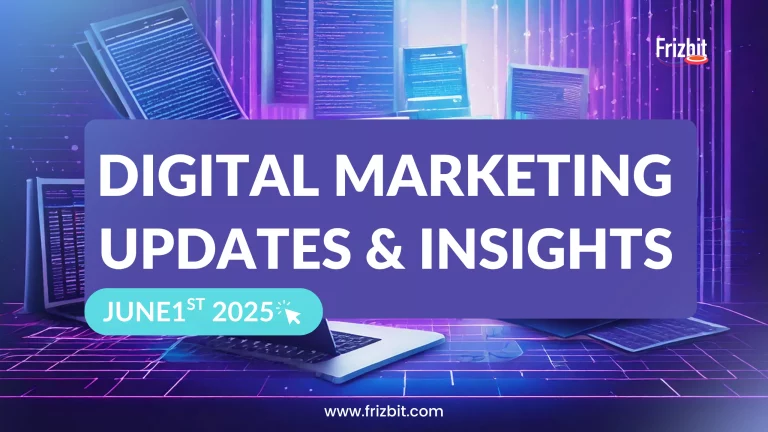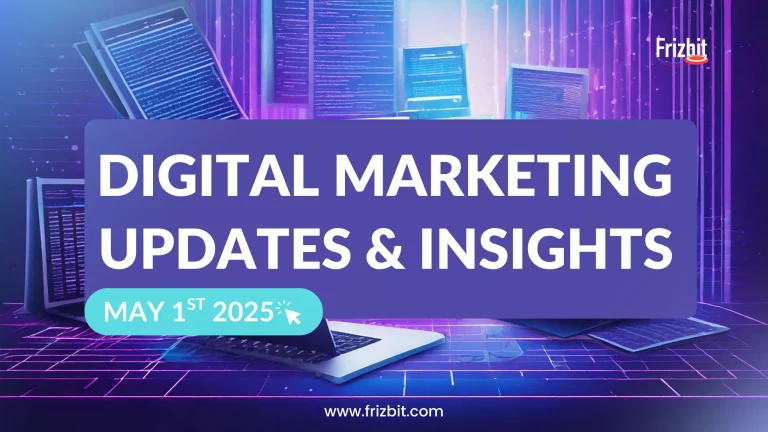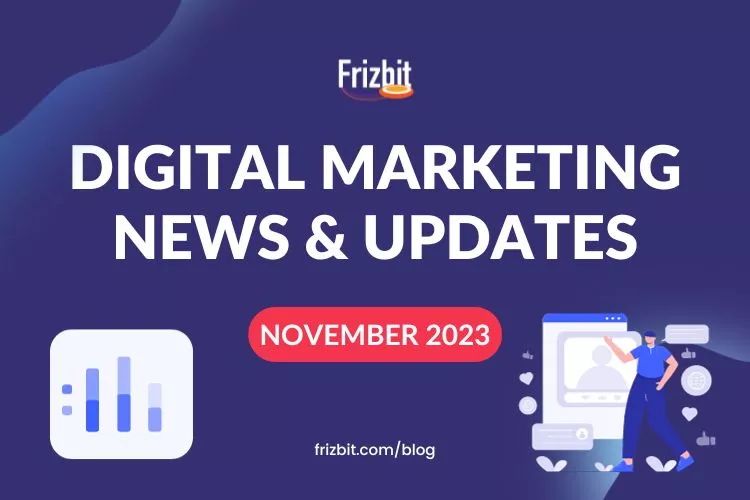
Welcome to our November digital marketing news round-up! 🚀 We’ve got the scoop on the latest trends shaking up search marketing, Martech advancements, and the latest updates from the social media world.
Among the most outstanding news we have:
Search Marketing: Google has offered valuable insights into improving search rankings and highlighted its new priority—first-hand knowledge. We’ll delve into these developments in detail.
Martech field: On the first hand, the tech giant Google has unveiled new generative AI tools tailored to enhance holiday season sales. On the other hand, we have good news for marketers who use Google Analytics and SalesForce, with a new update that promises to streamline and simplify their tasks.
Social Media Landscape: Meta has taken protagonism as it is facing again the strict regulations which have resulted in a complete ban on retargeted advertising. As anticipated, the imminent arrival of the cookieless era is drawing closer, reshaping the landscape of social media advertising.
Ready to dig deeper into these updates? Our blog article has all the insider insights waiting for you.
Search Marketing Updates
1. Google prioritises First-hand knowledge in its search rankings

Source: Deposit Photos
We’ve been closely following Google’s updates, since the latest news was featured in our October monthly newsletter. And Google has recently announced a rollout with changes in the ranking results of searches.
Now the company will prioritise first-hand knowledge, which focuses on providing real experiences, opinions and real advice as content on websites, when users are searching for any specific information.
Is that all?
No! Google will be including search personalisation based on user behaviour and search history as well. The feature will look like this:
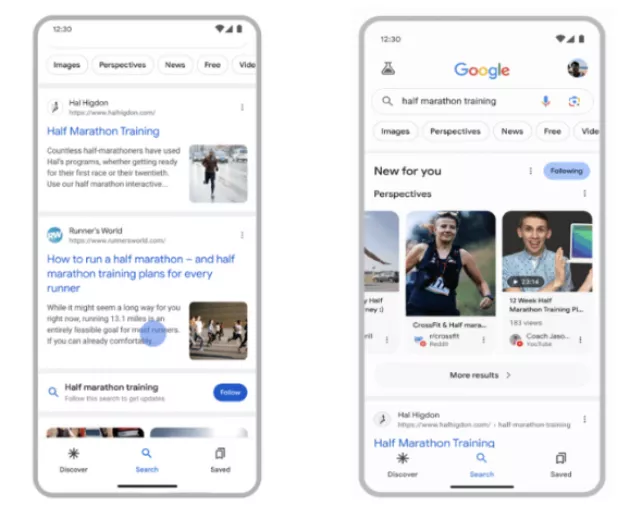
Source: Google
The initial image displays the current view, whereas the second image showcases a refined search layout, providing relevant information related to the search topic.
To access this personalised experience, users must scroll down after conducting a search. Subsequently, a “follow” request will appear, offering access to a more tailored and personalised search after clicking it.
What are the benefits of these updates in terms of rankings?
The company has expressed that in this way, users will have helpful information based on their used behaviour. Sharing that:
“Search has always been about connecting human curiosity with the incredible expanse of human wisdom on the web,” said Cathy Edwards, Vice President of Search at Google, in today’s announcement. “These improvements will help users find the most helpful information just for them, no matter how specific their question may be.”
Could this affect current SEO strategies?
Google has not addressed this concern. Nevertheless, it seems obvious that optimising web pages with valuable content is not something that web-managers should stop doing.
If anything, it’s clear that websites with valuable and first-hand information will be benefited from all this. Moreover, this strategic move from Google seems to be another of its ongoing efforts against AI content, don’t you think?
2. Google’s newest clarifications on ranking advice
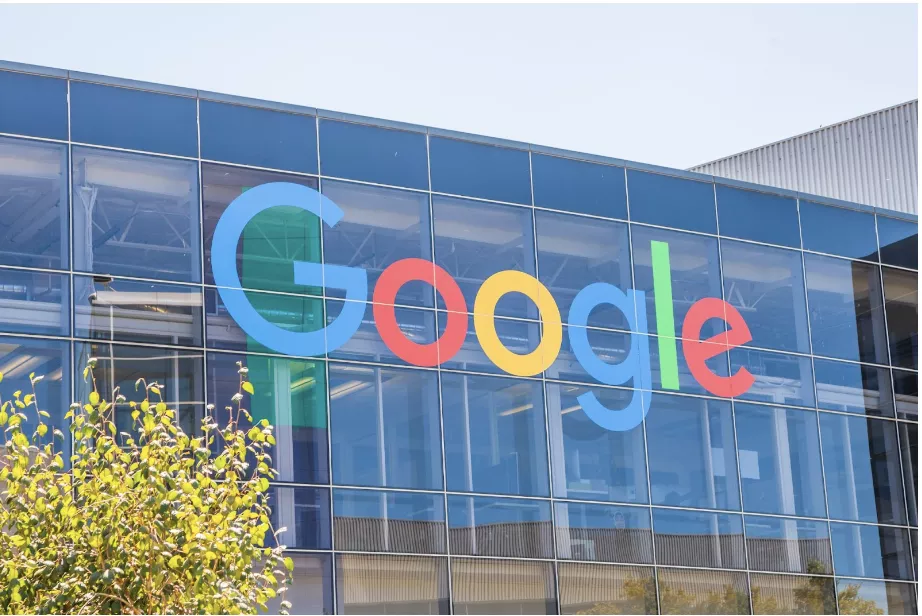
Source: Deposit Photos
During Google’s newest presentation, Danny Sullivan, Google’s Public Liaison for Search, took the stand to address a misunderstanding with Google’s SEO fundamentals helpful guide to optimise Search Rankings
The analyst and journalist from Google, whose job is to educate users about Search, expressed that this misunderstanding comes from Google’s explanations and the way the public has interpreted them.
Moreover, in a series of tweets on his X account, he shares that Google is not “perfect” and that the company has a continuous job to improve themselves.
Last week, I gave a presentation about Google Search results not being perfect, how we update to improve those results, and how our guidance to creators needs to improve. In this thread, I’ll share my slides and commentary for those who weren’t able to attend my talk…
— Google SearchLiaison (@searchliaison) November 16, 2023
Source: X (formerly known as Twitter)
What are these misunderstandings?
Some advices from Google were related to:
- Background about the author
- Links to an author page
- About page
Which are written on Google’s page as:
“Does the content present information in a way that makes you want to trust it, such as clear sourcing, evidence of the expertise involved, background about the author or the site that publishes it, such as through links to an author page or a site’s About page?”
Nevertheless, Sullivan explains what the users understood was that if they didn’t have an actual about page, for example, then they wouldn’t be able to rank. He goes on to say that “It does not work that way”.
Moreover, he continues and briefly explains what Google actually intended to advise:
“Our guidance is generally about a broad goal. For example, we advise people to think of the product content in a way that *makes you want to trust it* (not Google, you – or a reader) with examples of what might cause people to trust content, such as background about an author….”
Is this guidance new after all?
You will be surprised, but it is not that different from previous years. Sullivan showed a comparison between the years 2002, 2011 and current 2023, where the changes are mostly on the words. The goal remains the same, helpful content and for real people, not for search engines.
Overall
It seems we have been putting more pressure than needed, nevertheless, what seems obvious is that Google needs to be more clear when giving advice. And for marketers and web managers, all we can advise for now is to create meaningful and truthful content.
3. Google’s new generative AI tools for the holiday season

Source: Deposit Photos
As the Holiday season is already halfway through, there is good news for marketers to still have the chance to optimise sales during the remainder of the holiday season as Google has implemented new generative AI tools.
What is new?
- Search Generative Experience
- Shopping through photo search
- Virtually try on clothes
Firstly, Search Generative Experience, allows clients to have a better insight into what they are looking for, providing subcategories generated by AI related to the main search topic. Getting more specific options when buying a present.
Secondly, shopping through photo search enables customers to transform their envisioned gifts into reality. All they have to do is type what they are looking for, Google will provide images showcasing the idea and once they approve, they have to scroll down to see similar shoppable products.
Lastly, trying on virtual clothes is now available for men’s tops. Customers have a selection of over 40 models covering diverse skin tones, body shapes, height, and sizes to make a more accurate choice when buying clothes.
Our take on this:
These new features will allow marketers to have an improved product visibility, therefore, optimising sales for the rest of the holidays, but not just that. Buyers will also have a more unique shopping experience, and why not admit it? Easier than ever!
Martech Updates
1. Meta Widens Data Access: Empowering Research Through Content and Library API
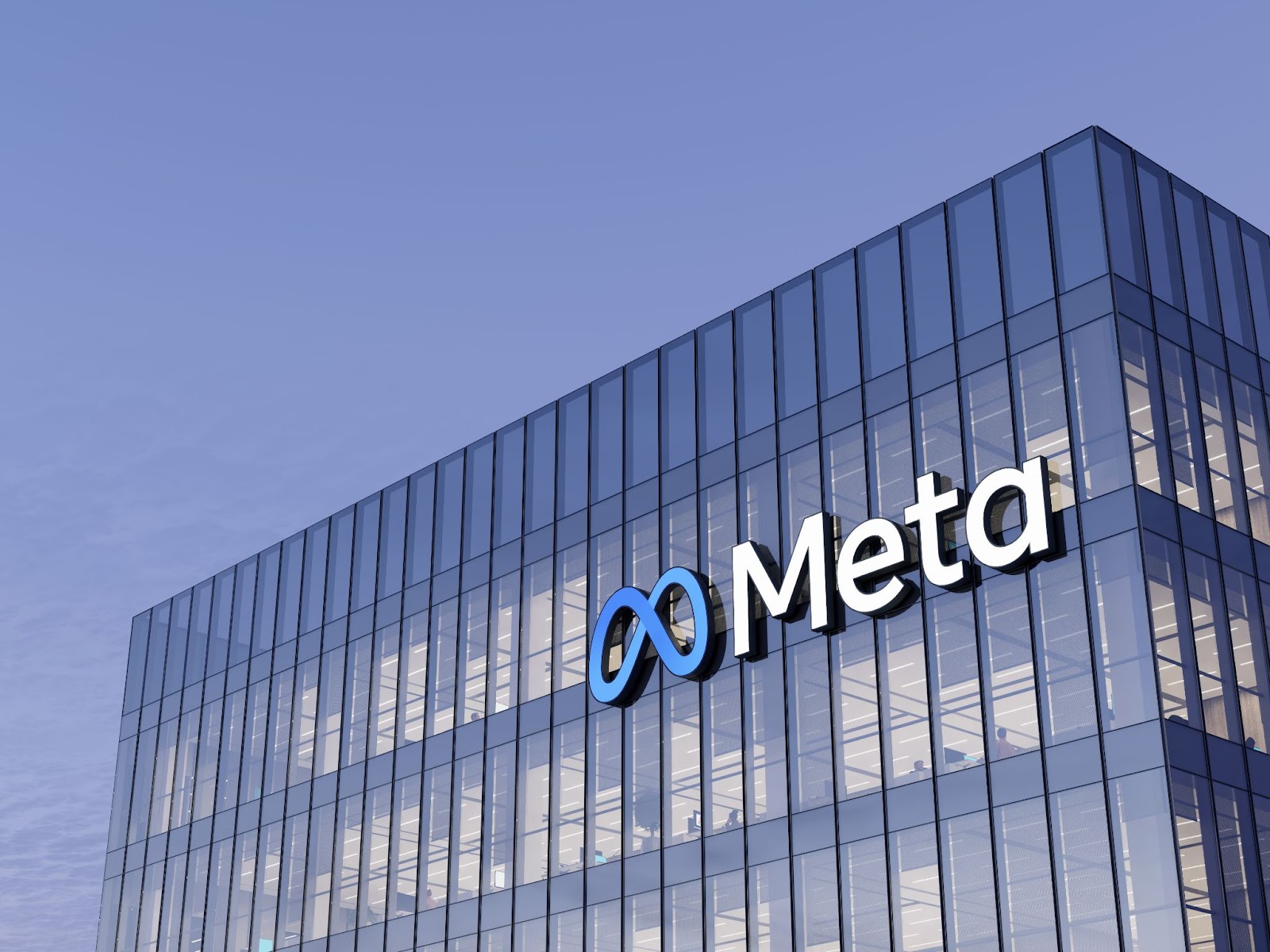
Source: Deposit Photos
Meta has decided to expand the access of their Content Library and API from Facebook and Instagram in order to incentivise for research. This will ultimately provide valuable key usage trends and new insights of social media from two of the most important platforms worldwide.
The company has expressed “Our Meta Content Library and API tools provide access to near real-time public content from Pages, Posts, Groups and Events on Facebook, as well as from creator and business accounts on Instagram. Details about the content, such as the number of reactions, shares, comments and, for the first time, post view counts are also available. Researchers can search, explore and filter that content on both a graphical User Interface (UI) or through a programmatic API.”
How to have access to this data?
Sadly, the data is not available for just everyone, nevertheless, all that researchers need to do is fill in the form on the previous link and The Social Media Archive (SOMAR) will process and review all the applications.
On the other hand, if researchers want a sneak peek or early access, they can send an email to MetaResearchApplications@meta.com for access to the demo, which lasts 60 days.
Requirements
- Researchers must be associated with an academic institution or a nonprofit organisation that primarily conducts scientific or research activities serving public interest to qualify for access.
- Publishers won’t need approval from Meta, nevertheless, they must acquire attribution guidelines and give notice to the company upon publication.
- No fees will be applied.
2. Update between Google Analytics 4 and Salesforce Marketing Cloud
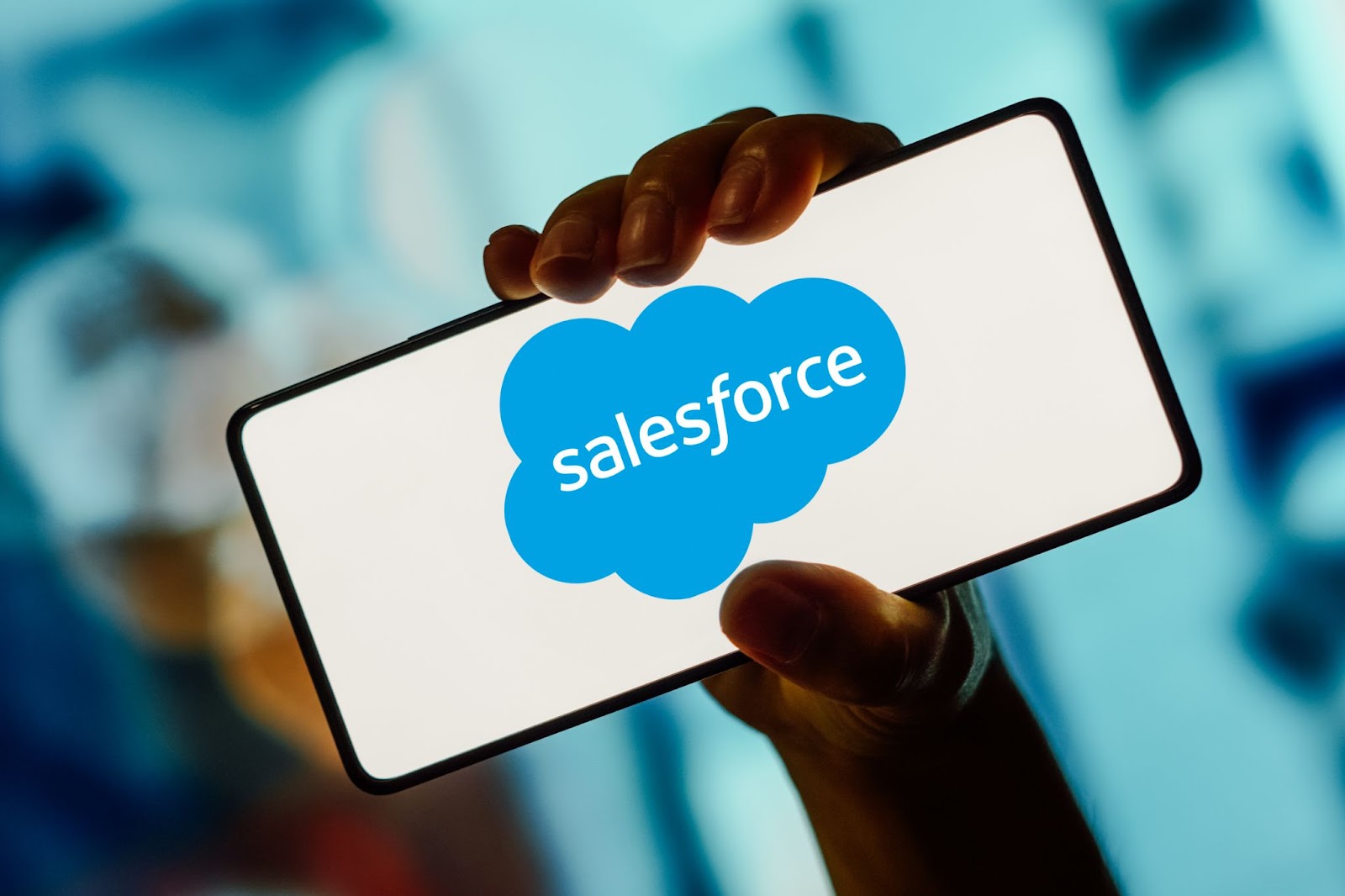
Source: Deposit Photos
Since 2017, Google Analytics and Salesforce have maintained a partnership. And now they have introduced an update aimed at enhancing customer insights.
This update introduces the capability to link Google Analytics 4 properties with Salesforce Marketing Cloud via the Sales Marketing Cloud interface, providing users with improved access to customer data.
What does this upgrade entail?
The integration of GA4 with Salesforce Marketing Cloud enables seamless audience synchronisation from Google Analytics to SalesForce Marketing Cloud.
Allowing the utilisation of these audiences in targeted email and SMS marketing campaigns within Salesforce, fostering more effective audience targeting and therefore engagement with customers.
In order to access these synced audiences, all users have to do is go to “Admin > Audiences” , this will show Audiences lists, which will be ready for targeted marketing activities. Keep in mind that the lists might take up to 24 hours to appear in Salesforce Marketing Cloud.
Do we like this new upgrade?
Big yes! This simplifies the use of both technologies and allows marketers to target their customers in a more smooth way.
Social Media Updates
1. Meta’s new released guide on lead generation advertising.

Source: Deposit Photos
As the holiday season is here, Meta has decided to provide a new guide on Lead generation ads, which should help companies boost their sales and raise awareness of their brand and increase conversions.
What does it include?
Meta has provided an easy-to-follow overview on what points should be considered when creating such ads. Firstly, making sure that the questions asked on these ads are legal and that users are given a privacy policy URL.
Secondly, it explains the various types of lead gen ads users can create and most importantly how to do so for each one. With a concise list of channels, including:
- Company website
- Forms
- Messenger App
- Phone Calls
- Mobile App
- Instagram messages
Thirdly, how to maximise the amount of leads, budget, audience, type of content of the post. Lastly, how to track the success of the created ad.
Handy right?
Now companies can make use of this holiday gift from Meta and optimise their sales as much as they can.
2. Meta faces EU ban on retargeted advertising – hello, data privacy protection
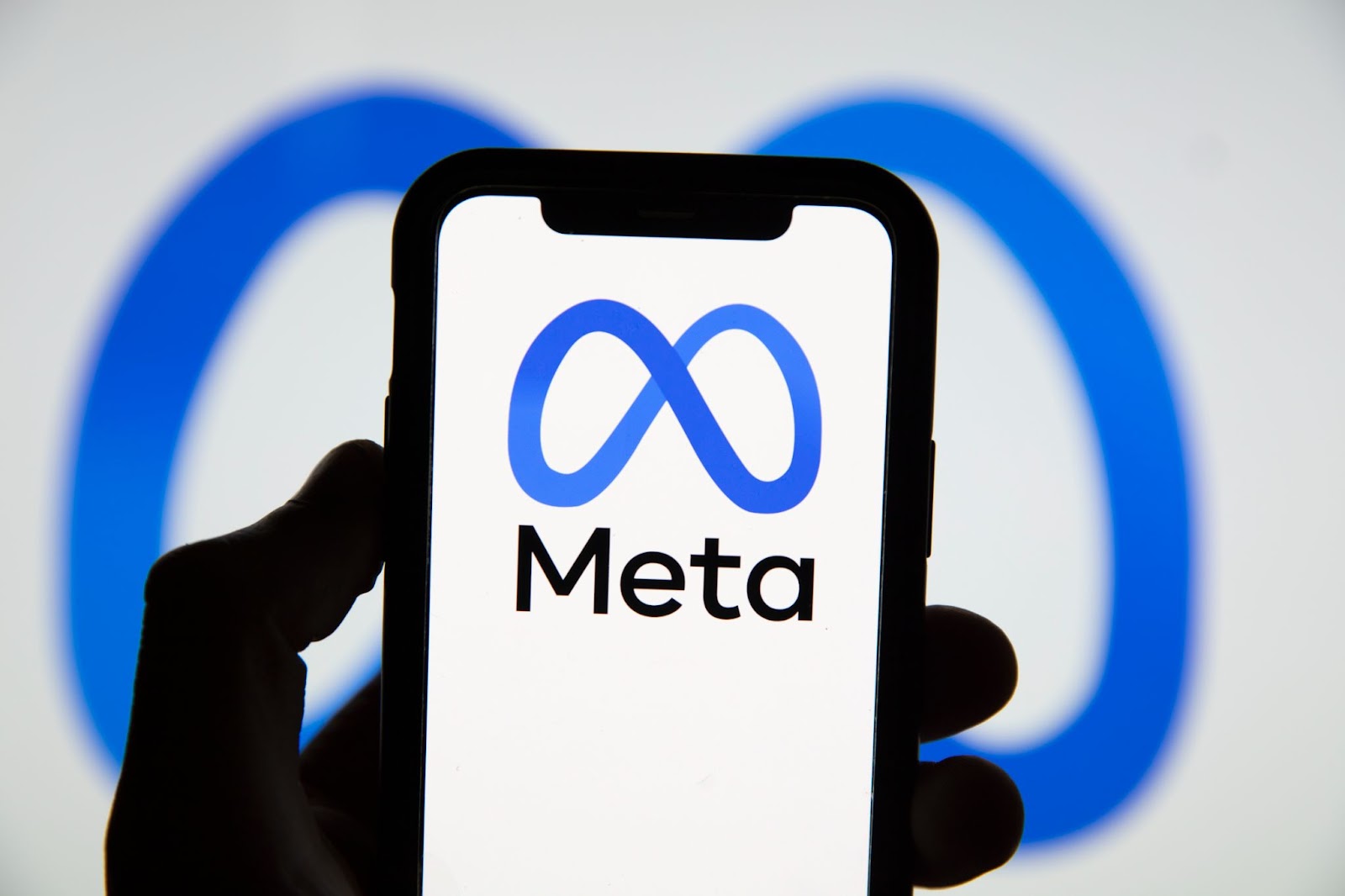
Source: Deposit Photos
Meta has been under scrutiny for the past weeks in Europe! But before we get into that, let’s start from the beginning.
How it started
After years of struggles to successfully fall under EU regulators and privacy laws, Meta was almost close to putting a stop to it. The company was about to launch a new subscription method that would allow users to reject or accept ads.
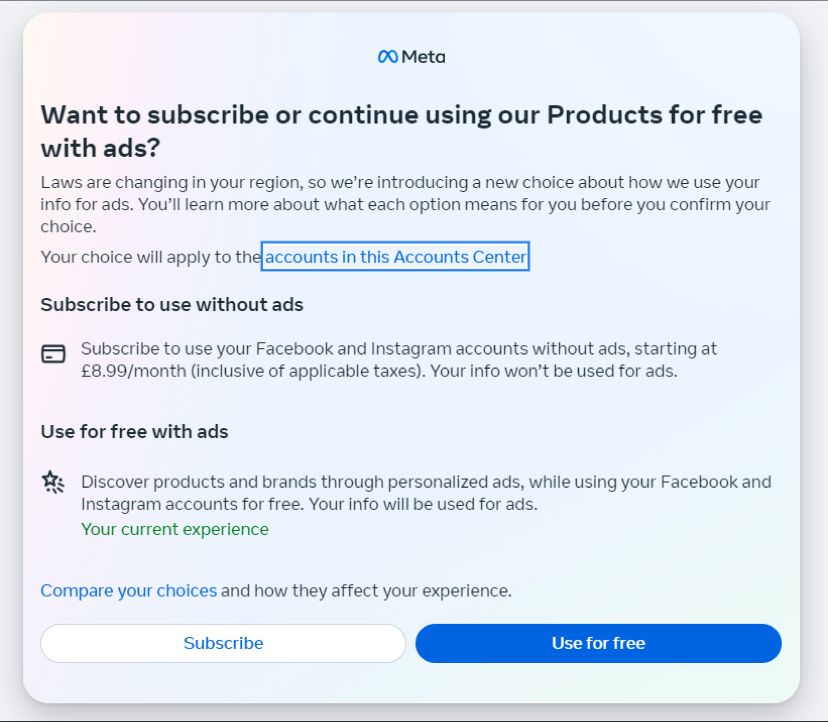
The model was meant to charge on Instagram €9.99/month on the web or €12.99/month on the phone, for a user experience free of ads or free of charge for a user experience with ads.
Nevertheless, as it may have been a relief for users who prefer an experience without ads, the model was far from perfect. As such, subscription will also block you from creating ads or boosting your content on your Instagram account and linked Facebook Page.
Meaning, if you don’t want ads, then you can’t offer them either.
Which happens to be a great tactic to encourage users to keep the ads, considering that 97% of Meta’s revenue comes from it. According to Meta’s reports, the company finished Q3 2023 with $33,643 billion and has a projection of $36.540 billion for the end of Q4 2023.
What happened?
As the launch was about to happen, the EU decided to extend the ban on Meta from using personal data of users for targeted advertisements. Putting on hold the launch, as the biggest concern was user consent.
Regardless, the EU has expressed they are evaluating this “The EDPB takes note of Meta’s proposal to rely on a consent based approach as legal basis”
Moreover, the EU has also labelled Meta as a “gatekeeper” for its Messenger and Marketplace platforms, which creates another issue for the company as such label says the company has substantial control over the market, and it would implicate regulations to reduce its impact.
The results?
Meta has decided to appeal the EU’s decision to label the company as a “gatekeeper”, as of now the story is still unfolding. Regarding the ban on ads, the European Union still needs to make a decision on the ban and study Meta’s arguments.
We guess the company is choosing its battles at the moment but all in all, whether we will be paying or not is still to be determined!
3. Youtube Fights Ad blockers

Source: Deposit Photos
YouTube’s advertising methods have come a long way and have evolved significantly. As you may know, those who dislike ads have the option to pay for a subscription and those who don’t mind the struggle can continue for free.
However, it’s easier said than done, as users typically strive to avoid extra expenses by resisting additional subscriptions. Nonetheless, YouTube is determined to persist in this battle, voicing a shift in this ongoing conflict.
What does this mean for users?
Many users have been using ad blockers in order to watch YouTube videos without ads and without needing to pay for the Premium subscription, therefore, YouTube has decided to implement load delays in those cases.
Which means that you will have a really slow user experience and user view if YouTube finds you have an ad block activated, moreover, you might risk getting blocked. Below, you can see a screenshot of one of the pop ups you might get if YouTube identifies you using ad blockers.
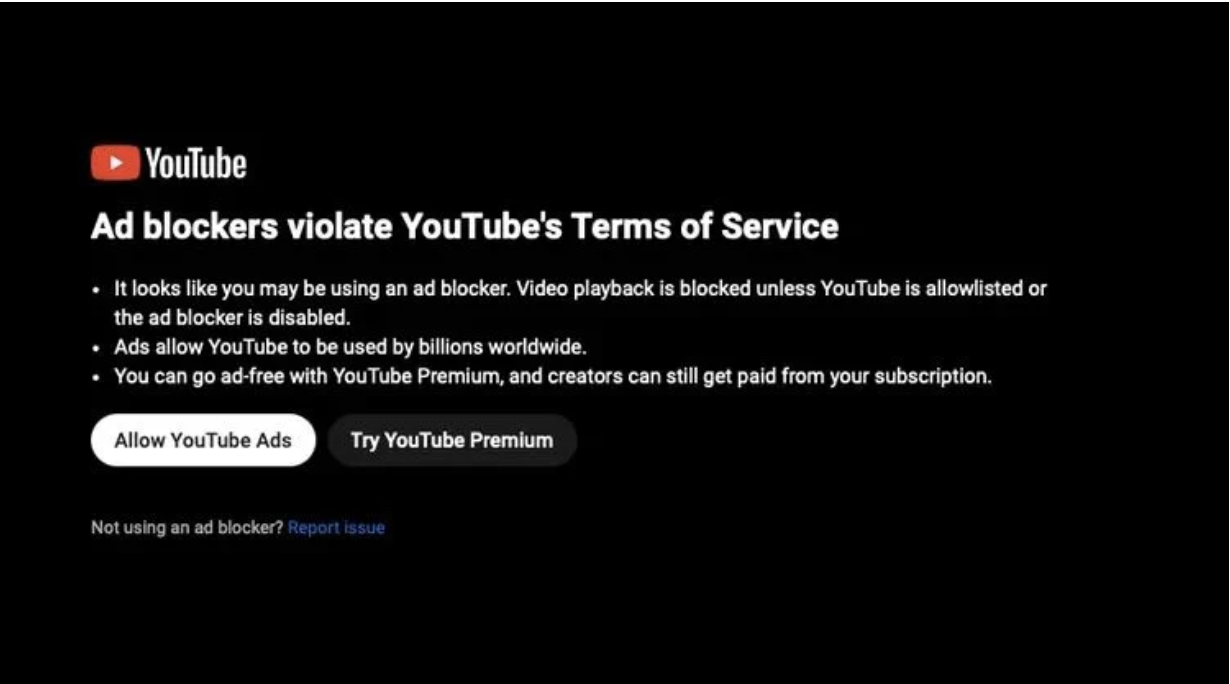
Source: YouTube
As you can see, the company will still give you the chance to choose one of its subscription methods. Nevertheless, its efforts have a long way to go still, as this affects web users and not app users, yet.
Why is winning this battle so important for YouTube?
Firstly, this is the company’s core revenue stream. Moreover, the company has voiced to The Verge that:
‘Ads support a diverse ecosystem of creators globally and allow billions to access their favourite content on YouTube.”
What can we expect for the future?
This can be a game changer for many platforms, and now we can expect many companies to foster the same strategy against ad blockers. It seems that after all we will have to pay if we really don’t want ads.
About Frizbit
1. Frizbit’s Product highlight: WhatsApp Marketing
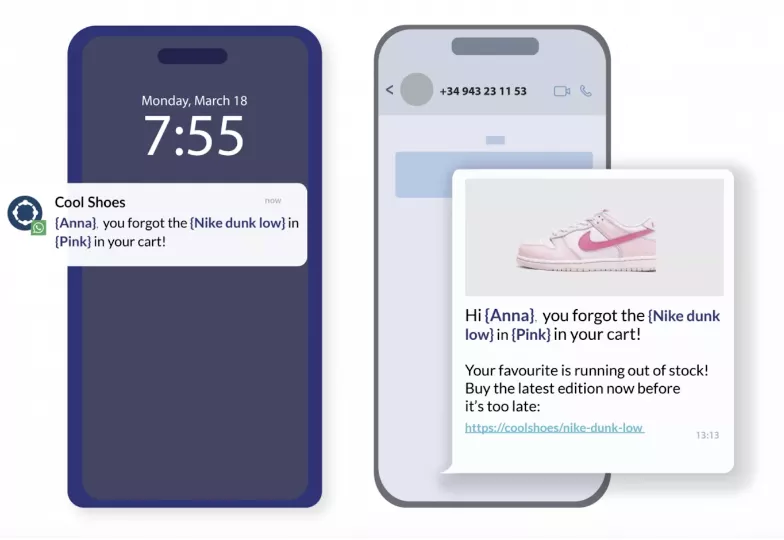
At Frizbit, we are committed to allow our customers to connect with their clients in a hyper-personalised way while increasing sales. One of our channels to do so is via WhatsApp Marketing Automation.
What are the benefits?
This solution will help your company to:
- Leverage the power of the fastest engagement channel
- Connect with over 2 billion active users
- Enhance interactions with audio and visual content
It has been tailored to meet all needs in e-commerces, travel, classified and B2B SaaS markets. Allowing them to send automated messages, optimised by location, time-zone and segment by user behaviour and purchase behaviour interests.
Furthermore, sending WhatsApp messages is simple and enables you to conveniently connect with your customers, reaching them through an app they use daily without requiring additional effort on their part.
We firmly believe that this enhanced functionality will significantly benefit your business by boosting user engagement, increasing sales and improving personalised customer interactions, with its 30% CTR.
Ready to build deeper connections with your clients while elevating their online purchasing experience?
Reach out to our dedicated team or request a free demo to try Frizbit’s Customer Engagement Platform, so you can specifically cater your business goals.
Missed the previous edition?
